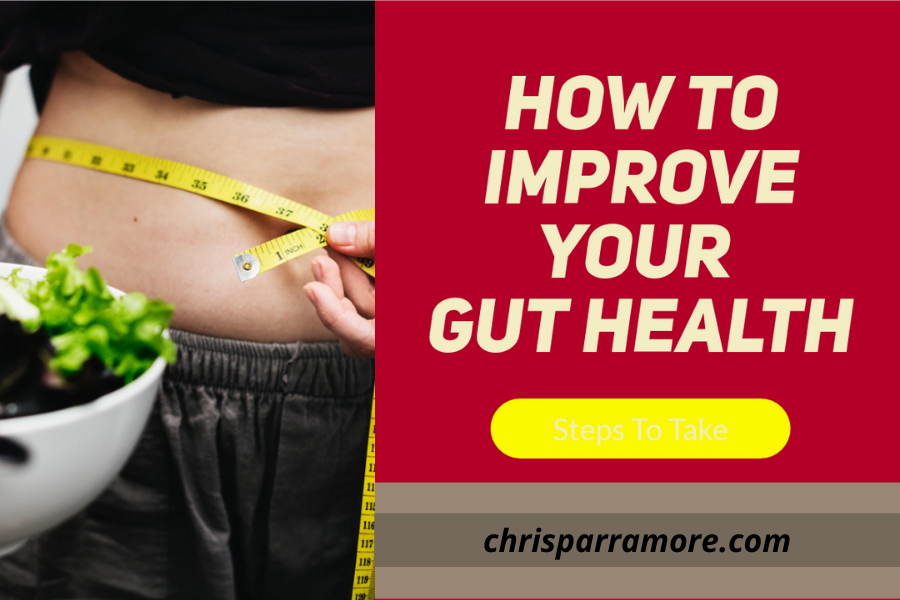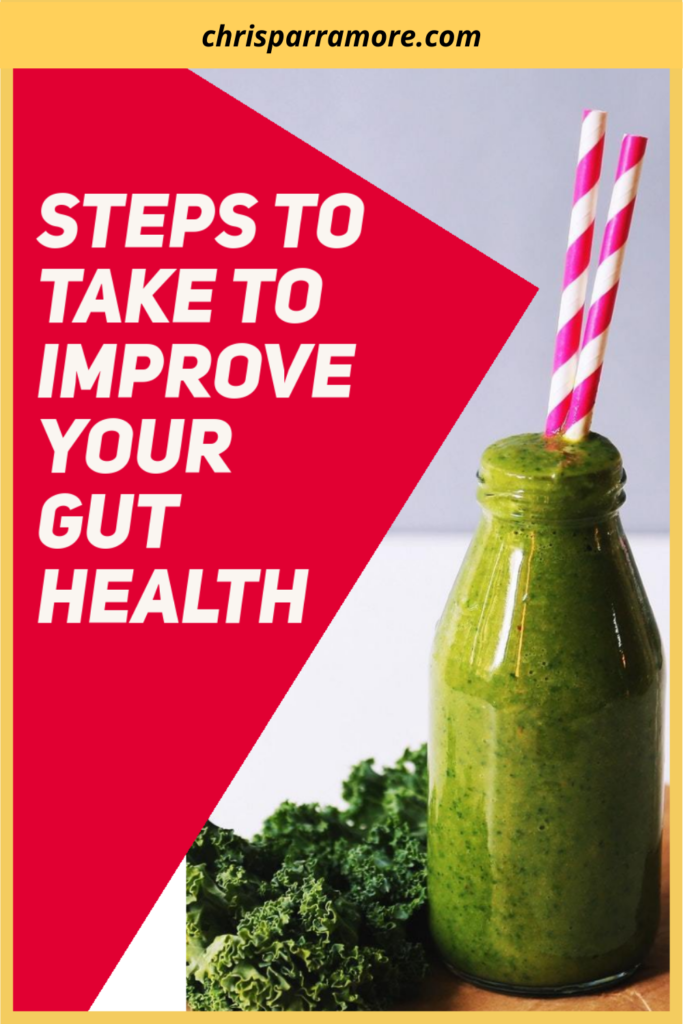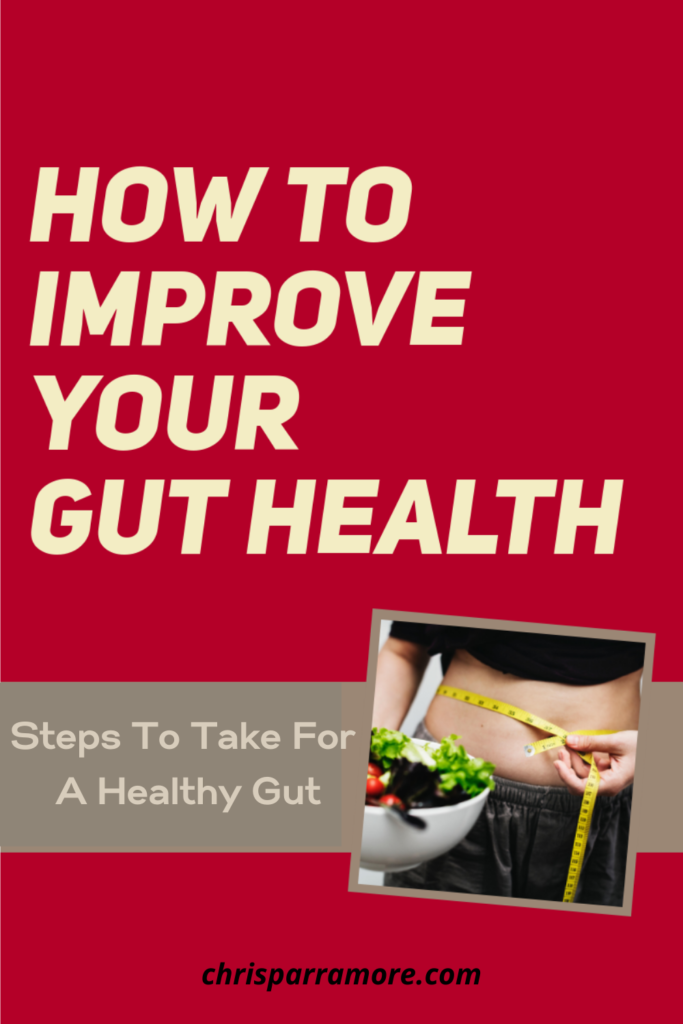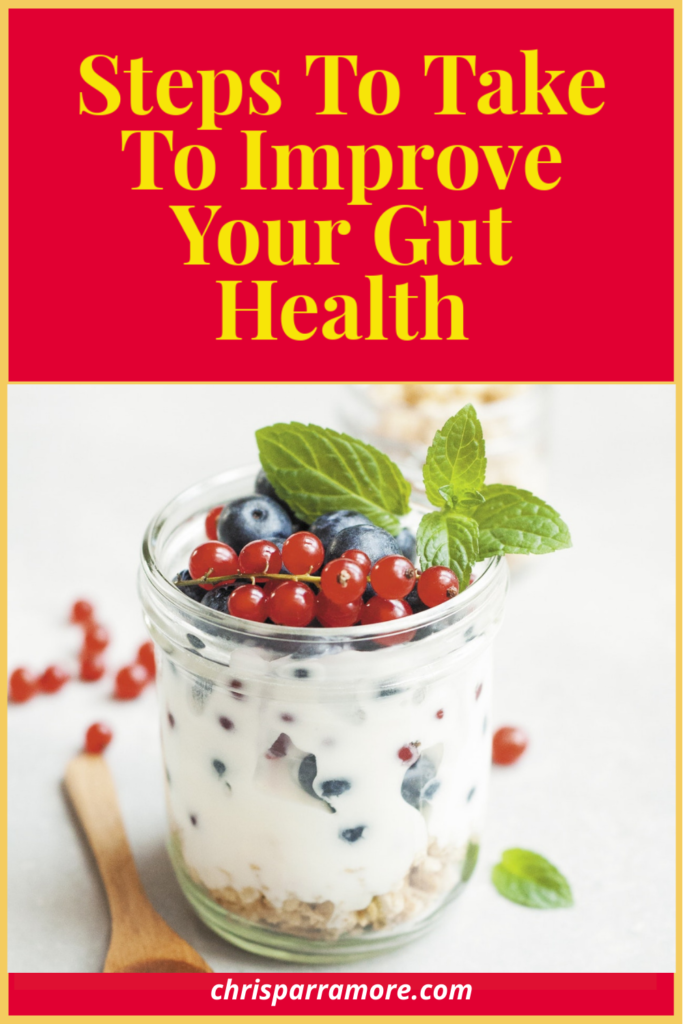How Healthy is Your Gut?
How healthy is your gut? Have you ever stopped to think about that? If not, you might want to start paying attention! Your gut plays a huge role in your overall wellbeing. And it’s an area of my health that I’ve given a lot of attention to over the years. Did you know that gut health is the foundation for your overall health and wellness? For example, it plays a big part in the health of your immune system, It can also contribute to your mental health. So, if you’re looking to get healthier, focusing on your gut health is definitely the place to start. I’ll help you’ll discover how to tell whether or not your gut is healthy and steps to take for improvement.
I’m certainly not an expert, but I can honestly say I have struggled with digestive issues most of my life. I’ve done a ton of reading and researching on the subject in order to help myself. I’ve been to doctors in the past and I’ve been told I had diverticulitis. I had my first colonoscopy at age 50. After this procedure the Dr. told me he removed “two large pre-cancerous polyps.” I was shocked! I’ve had three more procedures since then, which thankfully, all turned out well. Why am I being so open about this? Because I’ve realized how important gut health is to our overall well-being, and that is why I want to share with you how I’ve improved my health.
Why Gut Health Is So Important
We all want to be healthy and be feeling our best, and that requires a healthy gut or digestive system. And for that, we need the right balance of bacteria in our GI tract. Each person has about 300 to 500 different species of bacteria in their digestive tract. Our GI tract is lined with microorganisms making up what is known as the “gut microbiome.” And though it may sound gross, gut bacteria perform many important functions in the body, including aiding the immune system, making energy for the body from the food we eat, producing the feel-good brain chemical called serotonin, and eliminating waste substances and toxins.
While many gut microorganisms are very beneficial and even necessary to a healthy body, some are harmful to our health. Basically, we all have a mixture of good and bad bacteria, and sometimes the bad bacteria takes control, causing an imbalance in our gut, which can contribute to various health conditions. Also, many facets of our daily lives such as high-stress levels, too little sleep, eating processed and high-sugar foods, and taking antibiotics can all damage our gut microbiome. This, in turn, may affect other aspects of our health, such as the immune system, brain, heart, skin, weight, hormone levels, ability to absorb nutrients, and even the development of disease.
Signs Of An Unhealthy Gut
So, how do you know whether or not your gut is healthy? Or when you have an imbalance in gut bacteria? These are just some ways to tell when you have an imbalance in gut bacteria or an unhealthy gut. Of course, we may all experience these things on occasion, but if you have any of the symptoms on a regular basis it could be a sign of poor gut health. And if you have concerns, it could be worth visiting a doctor. Receiving a proper diagnosis will help you to better treat the issue. Here are some of the most common signs.
- Do you experience stomach problems? Stomach disturbances like gas, bloating, constipation, diarrhea, nausea, heartburn, and reflux can all be signs of an unhealthy gut. A balanced gut will have less difficulty processing food and eliminating waste. If you are experiencing any of these quite frequently, it could be a sign you need to improve your gut health.
- Are you ill quite frequently? Did you know that over three-quarters of your immune system is located within the GI tract? Therefore, if your gut health is off-balance, you could find yourself getting sick quite frequently. When working correctly, the microbiome of the gut helps to produce mucus which literally traps toxins, bad bacteria, and viruses. This mucus also aids in the absorption of vitamins and minerals which are required for a healthy immune system.
- Do you often feel stressed, anxious, or depressed? Scientists have discovered a form of communication between the gut and the brain, which they call the Gut-Brain Axis. The gut sends neurotransmitters through the nerves and the immune system up to the brain, and the brain also sends signals to the gut. This helps regulate the dopamine and serotonin levels in your body. Therefore if you become overly stressed or anxious, you’ll often feel sick too. So, if you do have poor gut health, it can affect your mental health too. Of course, this isn’t always the case, because stress, anxiety, and depression can be triggered by many different things.
- Do you often feel like you have brain fog or trouble concentrating? If you often have difficulty remembering things poor gut health could be the cause. These symptoms could be a result of just mental fatigue. But gut health also has a direct effect on our cognitive performance.
- Do you constantly feel tired? Another tell-tale sign of an unhealthy gut is a lack of energy. If the bacteria within the gut isn’t balanced correctly, it can prevent the body from getting the nutrition it needs. The gut is responsible for helping the body to absorb nutrients, and if it isn’t working properly, this can lead to fatigue. It can also cause toxins to seep out through the intestinal walls, further contributing to tiredness. Our energy levels are greatly impacted by the status of our gut health.
- Do you experience skin irritation? Skin conditions such as acne, eczema, and psoriasis may be related to an unhealthy gut. Poor absorption by the gut of vitamins, minerals, and antioxidants needed to keep your skin looking healthy can contribute to skin problems. Inflammation in the gut, often caused by a poor diet, or food allergies may irritate the skin and cause inflammation.
- Have you experienced unintentional weight gain or weight loss? Gaining or losing weight without making changes to your diet or exercise habits may be a sign of an unhealthy gut. An imbalance in the gut can impair your body’s ability to absorb nutrients, regulate blood sugar, and burn and store fat. Weight loss may be caused by small intestinal bacterial overgrowth, while weight gain may be caused by insulin resistance or the urge to overeat due to decreased nutrient absorption.
What Contributes to Poor Gut Health
A diet high in processed foods and added sugars can decrease the number of good bacteria in your gut. This imbalance can cause increased sugar cravings, which can damage your gut even more. Consuming big amounts of refined sugars, primarily high-fructose corn syrup has been linked to increased inflammation in the body. Inflammation can cause all sorts of health problems and can be the precursor to a number of diseases. Scientists and the medical community are learning is that there are many foods that cause chronic inflammation throughout your body. Also, taking a round or two of antibiotics can wipe out all the good bacteria in your gut, and cause an overgrowth of yeast which can actually cause you to crave more sugar.
Junk foods can cause inflammation. It’s the chemicals, fats, additives, and processed sugars in junk foods that can cause inflammation. They can cause your digestive system to become inflamed, as well as your heart and cardiovascular system, and other organs. Did you know that inflammation appears to be the source of most diseases? Chronic inflammation can cause diabetes, heart disease, cancer, and even Alzheimer’s. The reason most of us don’t see the damage caused by chronic inflammation is that it resides inside the body. Also if you have a gluten intolerance or a disease like Crohn’s, then you also will experience inflammation in your gut without the proper diet.
Ways To Improve Your Gut Health
If you want to improve your overall health, focusing on your gut health is essential. Probiotics are known to be extremely good for the gut and are highly recommended for gut TLC. What exactly are Probiotics? Probiotics are the healthy live bacteria that live in your digestive system. They help stimulate natural enzymes that keep our digestive system functioning properly. Your digestive system has trillions of bacteria, the majority of which are good, but there are also the bad bacteria present. The good bacteria help with digestion, and also help keep the bad bacteria under control. If the good bacteria in your gut gets damaged, the bad bacteria can take over and cause illness, discomfort, and inflammation.
A natural source of probiotics can be found in certain types of foods and will repopulate your gut with good bacteria. You can also take probiotic supplements to help heal your gut. Supplements can be found in liquid or solid form. Different types of probiotics provide different health benefits for the gut. You can also take probiotics that contain prebiotics. Prebiotics are also important and feed the good bacteria in your gut, and these can be found in specific foods. These are actually fibers that we don’t digest on our own, so they are consumed by the probiotics, or good bacteria in our gut.
Natural Gut Health Remedies
Fermented foods provide a natural source of probiotics. Fermented foods may not sound overly appealing, but they can do wonders for the gut. They’re packed full of healthy bacteria and you can easily integrate probiotic-rich foods into your diet. If you’re new to fermented foods, you’ll want to start by consuming small amounts. Here are some powerhouse fermented foods.
* Yogurt – Live-cultured yogurt is one of the best probiotic foods. Choose a yogurt that is low in sugar and high in protein, such as Greek yogurt. Not all yogurts are created equally, so read the ingredients list.
* Kefir – Kefir is a fermented milk drink that is rich in probiotics. It’s traditionally made with dairy, but also can be made with coconut water or nut milk.
* Miso – Miso is made from fermented rye, beans, rice or barley. It’s salty and rich. Add a bit of miso to hot water and enjoy a healthy snack that’s also great for your digestion.
* Sauerkraut – Made from fermented cabbage, sauerkraut has live cultures and is also packed with vitamins A, B, C, and K.
* Kimchi – Kimchi is another fermented food made from cabbage. It’s an Asian version of sauerkraut and is spicy and it’s also a good source of beta-carotene, calcium, iron and vitamins A, C, B vitamins.
* Pickles – Pickles are great for a healthy snack, full of flavor, and packed with probiotics. We refer to pickled cucumbers as “pickles”, but many other vegetables can be pickled as well and be a source of probiotics.
* Tempeh – Tempeh is a soy food that’s rich in probiotics and high in protein. It’s considered a vegetarian food and is a great source of vitamin B12 also.
* Kombucha Tea – This is a fermented tea that contains a high amount of probiotics. It’s also known to increase energy and possibly help with weight loss.
Fiber-rich foods are a natural source of prebiotics, which provide food for the good bacteria. Prebiotics can be found in whole grains and certain fruits and vegetables. Fiber is so important for healthy gut function. Specific fiber-rich foods are also superfoods for getting your gut health back on track. Consuming foods such as leafy greens, broccoli, apples, cherries, mangos, cranberries, and walnuts regularly will benefit you. Basically, choose foods that are rich in fiber and probiotics, are nutrient-dense, low in saturated fats, and with minimally refined ingredients to get your health back on track. A balanced diet rich in fruits, vegetables, whole grains, nuts, and seeds is the key to maintaining a healthy gut.
Other Gut Health Remedies
If your gut needs a little more TLC, you might want to consider these natural gut health remedies as well. There are a lot of things besides diet that contributes to our overall health, including our gut health. Lifestyle habits are important factors maintaining a healthy gut microbiome. Regular exercise is so beneficial to keeping our digestive system working properly. Even just 30 minutes of walking daily can make a huge difference, or smaller increments of movement throughout the day can be so helpful.
Drinking adequate amounts of water and staying hydrated is essential for a properly working digestive system. So often we just don’t drink enough water, and this in itself can cause gut problems. Getting plenty of sleep every night can also make a difference in gut health and warding off illness. Also, stress and anxiety can cause disruptions in our gut so using relaxation techniques, deep breathing, and meditation can help. Furthermore, habits such as cigarette smoking and excessive alcohol intake will damage the health of the gut microbiome.
Common Questions About Gut Health
* Is It Possible To Get enough Probiotics From Foods?
- Personally, I find it hard to get enough probiotics through foods in my daily diet. I try to eat a balanced diet of good whole foods, and including some fermented foods. But that really isn’t enough for my body. Therefore, I supplement my diet with several types of probiotics. I found a delicious Lifestyle drink mix that I consume daily containing both prebiotics and probiotics, as well as being high in protein and other goodness. It’s delicious and nutritious, and I feel it’s contributed greatly to my overall good health. Another drink I love and use weekly is a greens drink mix, which is packed with vitamins from fruits and vegetables, as well as probiotics.
- In addition, I use a daily supplement, that provides probiotics and fiber, and is taken at night. It’s designed for optimal digestive support, keeps you regular every day, and reduces tummy bloat. Besides improving the quality of my daily diet, and drinking plenty of water, adding these nutritional supplements with the pre- and probiotics are what I consider to be the primary factors in healing my gut. I feel healthier now than I did in my 30’s and 40’s!
-
*How Do I Know If I Have Food Intolerances?
Food Intolerances occur as a result of difficulty digesting certain foods. This is different than a food allergy, which is caused by an immune system reaction to certain foods. It’s thought that food intolerances may be caused by the poor quality of bacteria in the gut. This can lead to difficulty digesting your trigger foods and cause unpleasant symptoms such as bloating, gas, diarrhea, abdominal pain, and nausea. Keeping a food diary can be helpful in identifying trigger foods that make you feel bad when you eat them. Also it’s good to note the fiber foods you eat and how your body reacts to them. Make changes gradually.
-
The Last Thing You Need to Know About Gut Health
-
If you want to improve your overall health, focusing on your gut health is essential. When working properly, your gut helps to prevent toxins from building up, while also helping nutrients to be absorbed by the body. However, when it’s not working properly, it can cause so many health issues. By making necessary dietary and lifestyle changes, you can greatly improve your gut health, and also heal your gut if necessary. Simply put, sticking to a healthy lifestyle and consuming a balanced diet including fiber-rich foods and probiotics can be huge factors in maintaining a healthy gut, and to your overall health!
-
If you’d like to know more about the probiotic drinks and supplements I use daily, drop me a comment below and I will reach out to you. Cheers to gut health and to maintaining your overall good health and wellness.
Hugs & Blessings!
Chris





